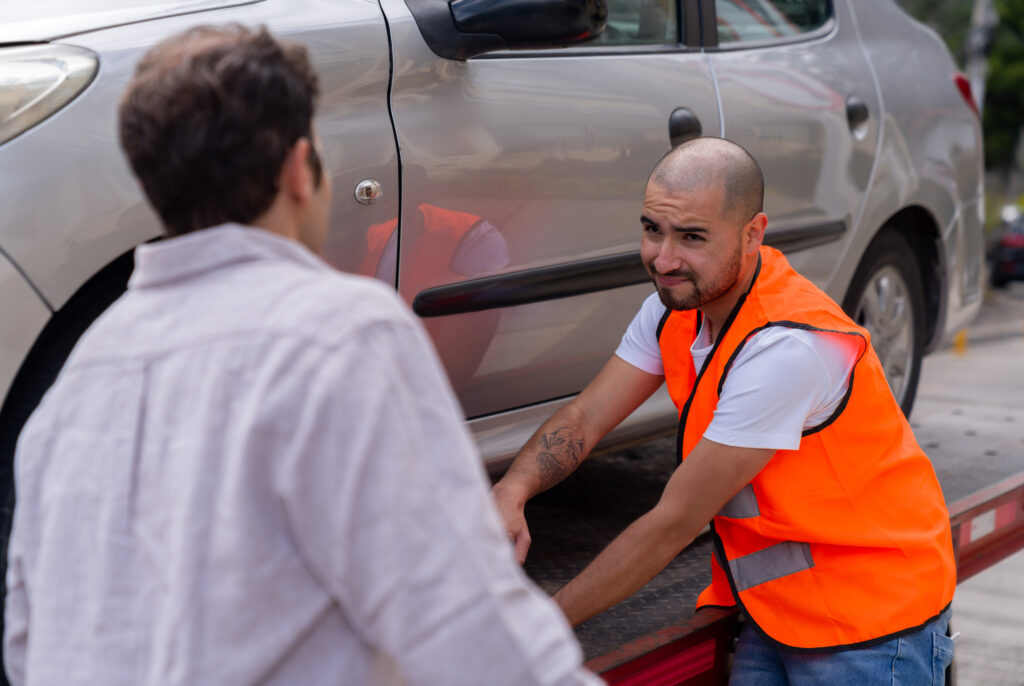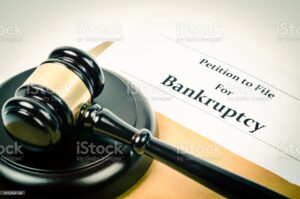
Buying a car is costly. Most people finance the purchase of a vehicle by taking out a loan. The agreement states terms for regular monthly payments to be made until the debt is satisfied. If the borrower defaults on payments, the lender has the right to repossess the vehicle.
Auto Finance Law & Bankruptcy
 However, there is a complicated intersection between auto finance law and bankruptcy. Before taking any action, borrowers must understand the implications of bankruptcy and be able to determine the most prudent steps to take before and after a vehicle has been repossessed. In general, merely having your car or truck repossessed is not enough to warrant filing for bankruptcy. Let’s try to simplify it.
However, there is a complicated intersection between auto finance law and bankruptcy. Before taking any action, borrowers must understand the implications of bankruptcy and be able to determine the most prudent steps to take before and after a vehicle has been repossessed. In general, merely having your car or truck repossessed is not enough to warrant filing for bankruptcy. Let’s try to simplify it.
Repossession = Bankruptcy? Maybe, maybe not.
- Filing a bankruptcy can stop a repossession from going forward.
When a consumer bankruptcy is initiated, the debtor protections include an “automatic stay.” This means that your creditors are prohibited from taking almost all actions to collect a debt. This automatic provision can be a powerful way to prevent repossession of the car, but only temporarily. - The automatic stay can last weeks or years.
The stay begins automatically upon filing and lasts only as long as the Court allows it to, which can be anywhere from weeks to several years, depending on the type of bankruptcy you choose to file. However, if you filed an earlier bankruptcy within a year of the new bankruptcy case, the automatic stay will terminate within 30 days. The judge also has the choice of extending or shortening the time period in certain circumstances. Even if you file for bankruptcy, to keep your financed car you will have to resume a car loan repayment schedule. - Filing a bankruptcy after the repossession will not necessarily get you the car back.
If the lender already repossessed your car, then the bankruptcy does not necessarily require the lender to return the car. If the car was already sold by the lender by the time you file bankruptcy, then it is already too late. However, if the sale has not gone forward, a bankruptcy may stop the lender from selling the car, and perhaps you can get it back by agreeing to ongoing monthly payments. This is something to discuss with your bankruptcy attorney. - If you file bankruptcy, you might have to eventually give up the car, but not always.
The point of bankruptcy is to help people in debt have a fresh start. Because of this, there are certain state and federal exemptions you can claim to prevent the car from being lost to the bankruptcy. For example, under the federal rules, you can claim $4,450 in a motor vehicle as exempt. This means that if you owe less than that amount on the car, you’ll be able to keep it. If you owe more, then the trustee may sell your car, pay you $4,450 for the exemption, and distribute the rest among your creditors — unless you make a showing of need before the bankruptcy court, something your bankruptcy lawyer can help with. - Even if you file bankruptcy, you will likely need to continue making car payments throughout the bankruptcy if you want to keep the car.
This is because the lender has “lien” or “security interest” in the car, which is still recognized in the bankruptcy. So, if you don’t pay as agreed, or if you default on the car loan in some other way (g. failing to maintain insurance) then the lender may still be able to repossess the car. Practically speaking, you’ll need to keep paying on the car loan if you want to keep the car through your bankruptcy.Borrowers have rights when facing repossession
 If your car was already repossessed, you have other rights as a consumer borrower, separate from any bankruptcy proceeding. Bankruptcy is only one tool or avenue if your car or truck has been repossessed – and it might, or might not, be right for your specific situation. Consult with an experienced consumer lawyer to understand your options outside of a bankruptcy.
If your car was already repossessed, you have other rights as a consumer borrower, separate from any bankruptcy proceeding. Bankruptcy is only one tool or avenue if your car or truck has been repossessed – and it might, or might not, be right for your specific situation. Consult with an experienced consumer lawyer to understand your options outside of a bankruptcy.
Seek advice from an Experienced Consumer Lawyer
 If you’re concerned that the lender my repossess your vehicle, or perhaps thinking of filing bankruptcy to get your car back after repossession, contact Flitter Milz for a no cost case evaluation. Our attorneys are knowledgeable of consumer laws that protect borrowers from wrongful repossessions.
If you’re concerned that the lender my repossess your vehicle, or perhaps thinking of filing bankruptcy to get your car back after repossession, contact Flitter Milz for a no cost case evaluation. Our attorneys are knowledgeable of consumer laws that protect borrowers from wrongful repossessions.
Pictured l-r: Attorneys Cary Flitter and Andy Milz.







